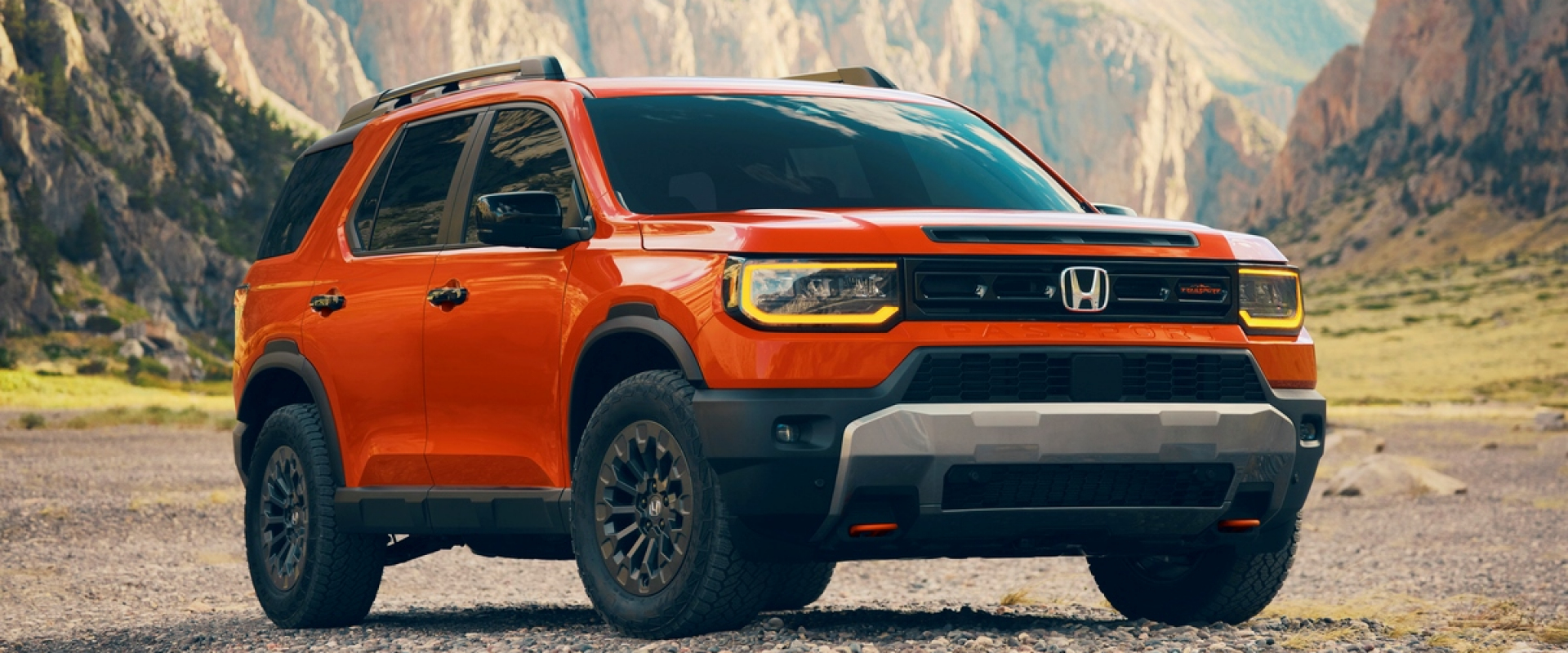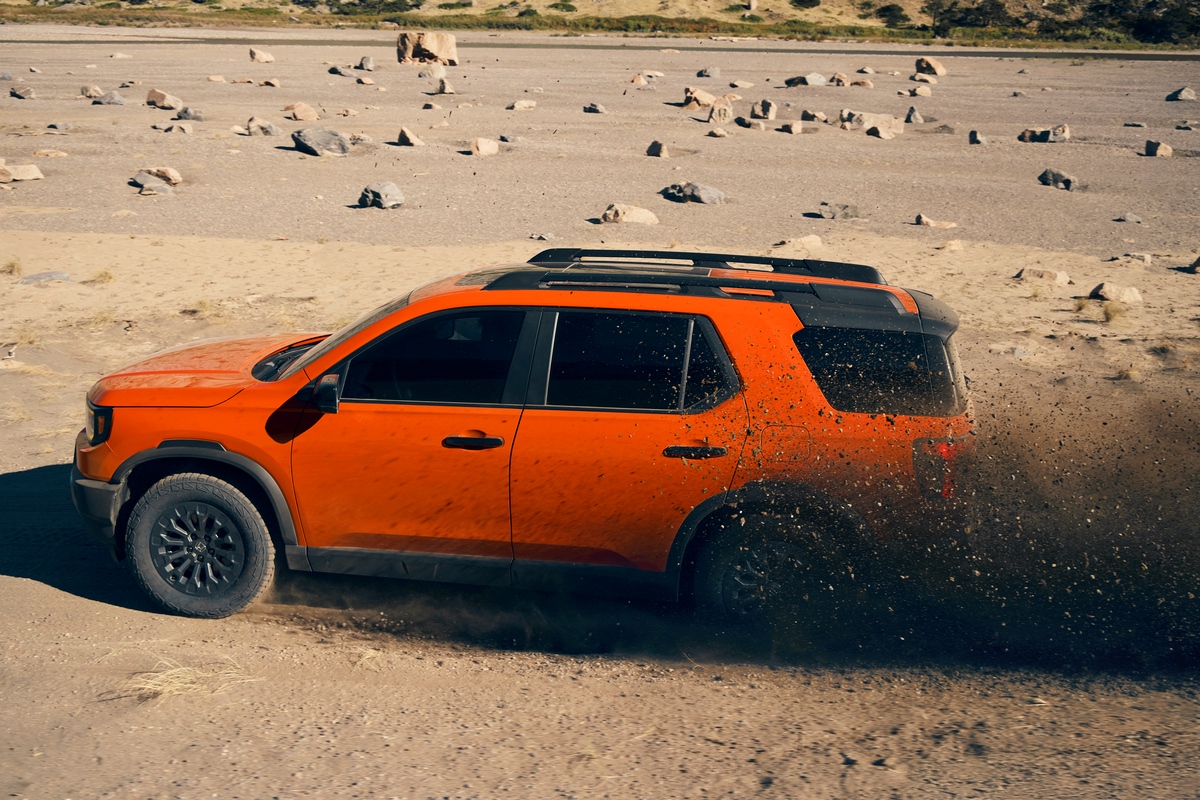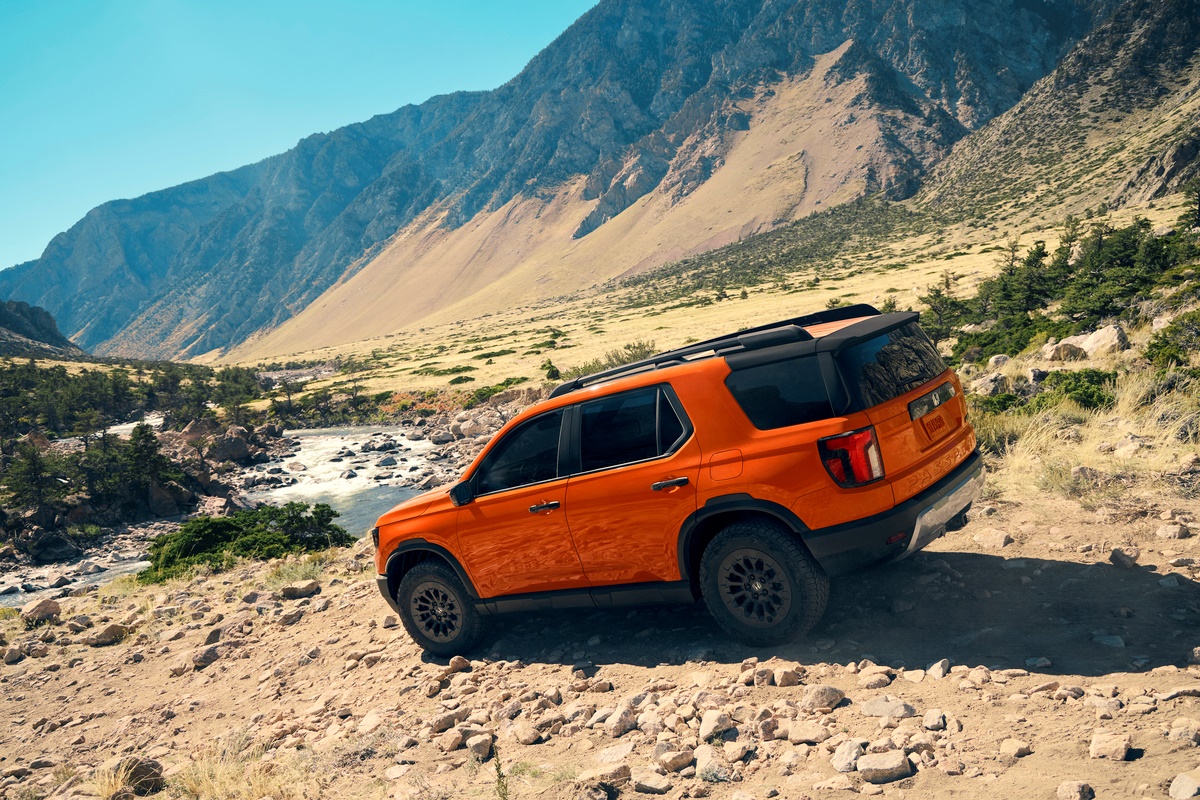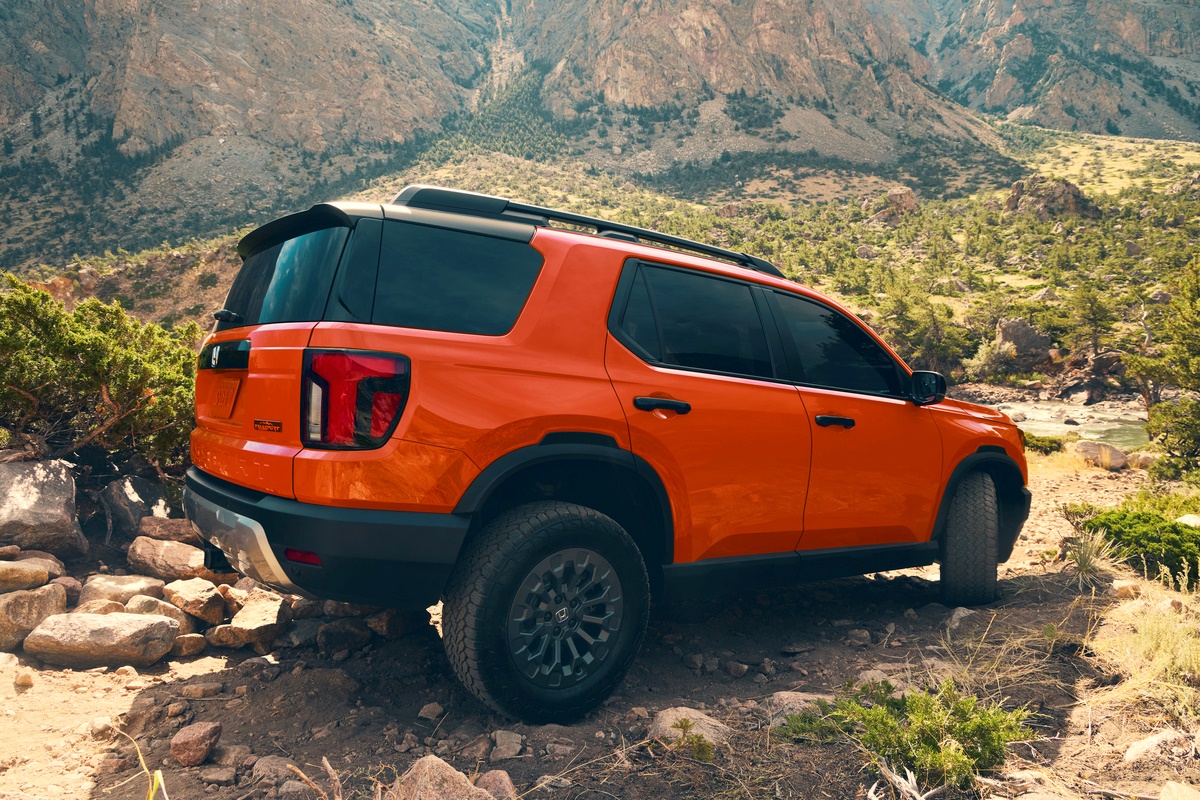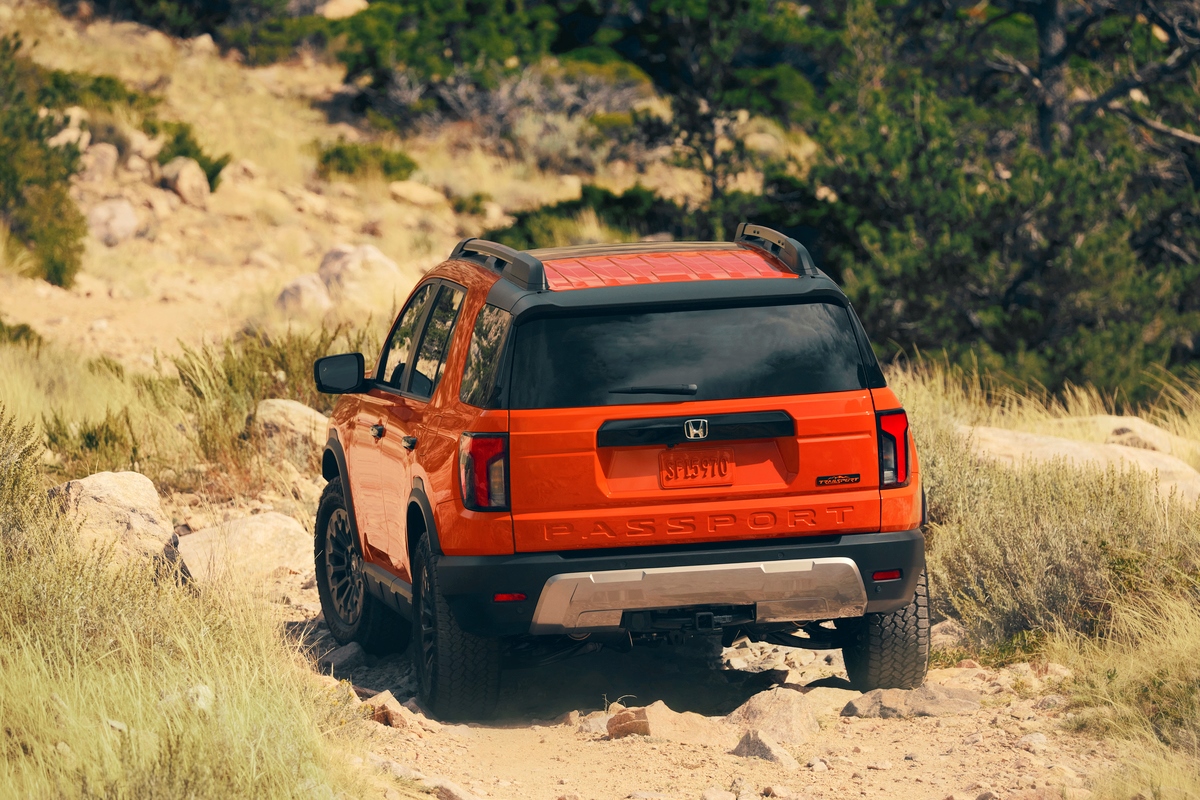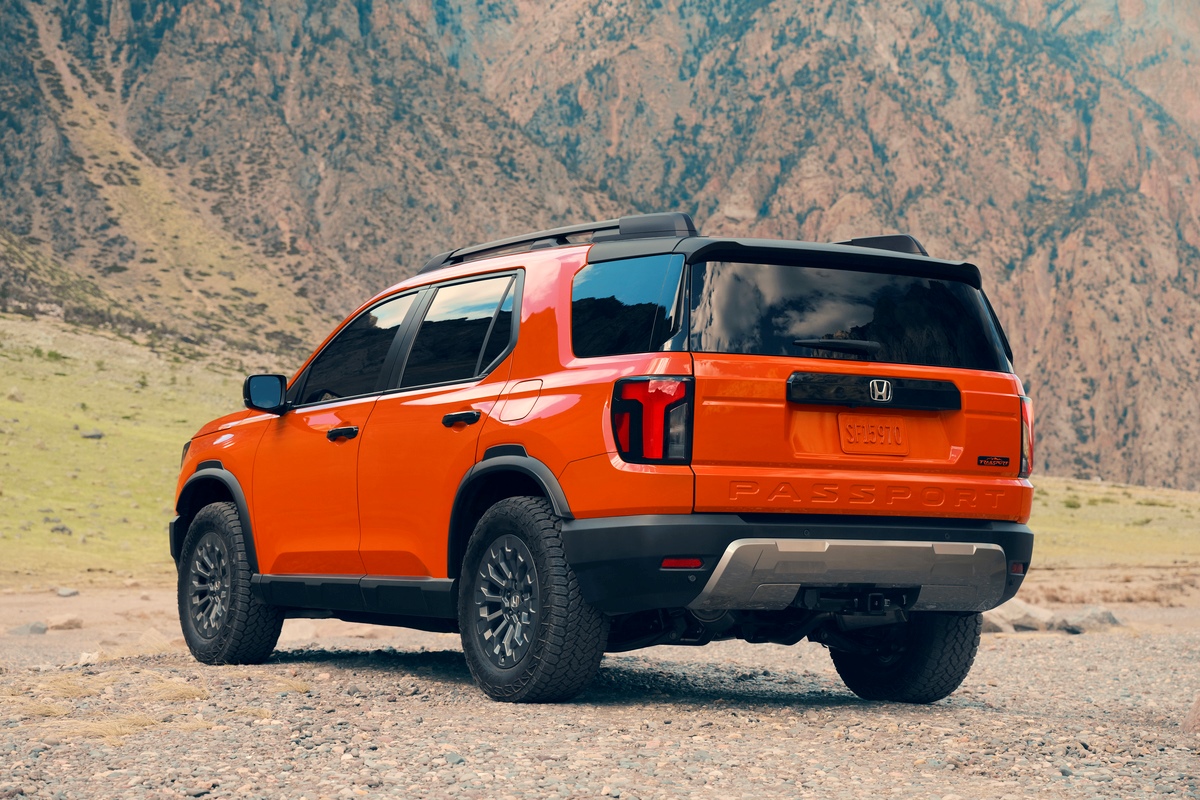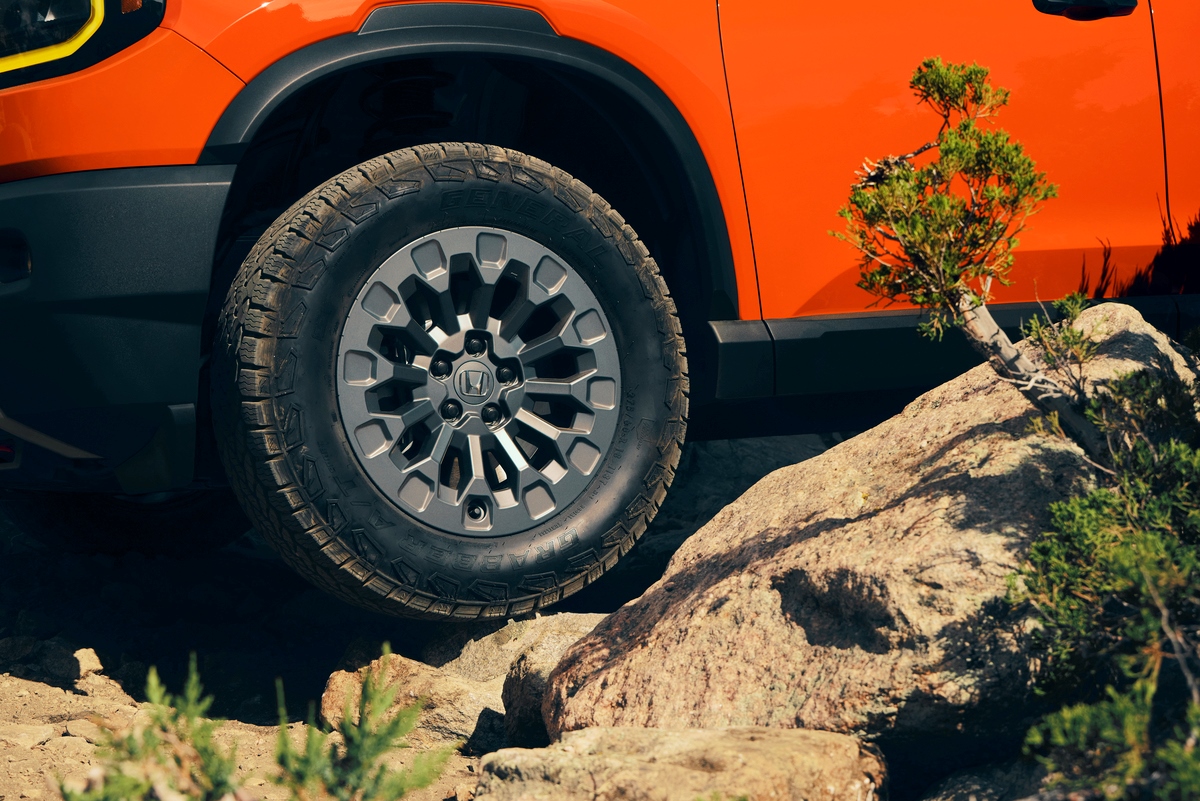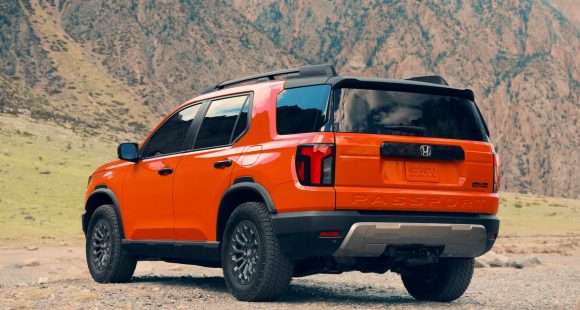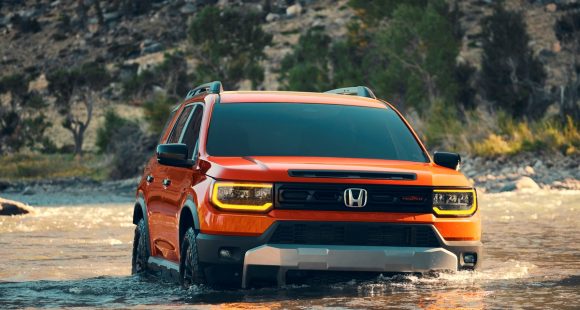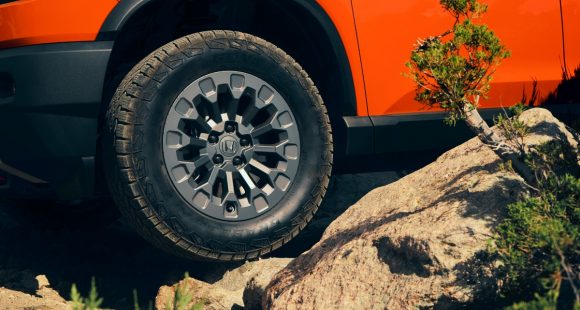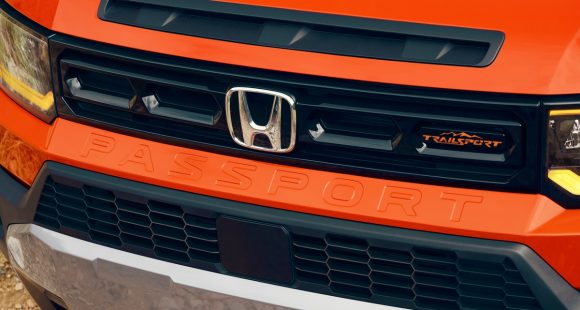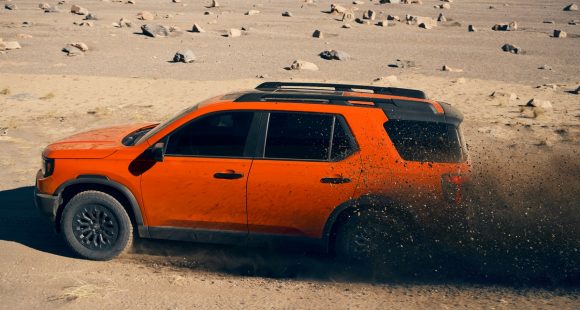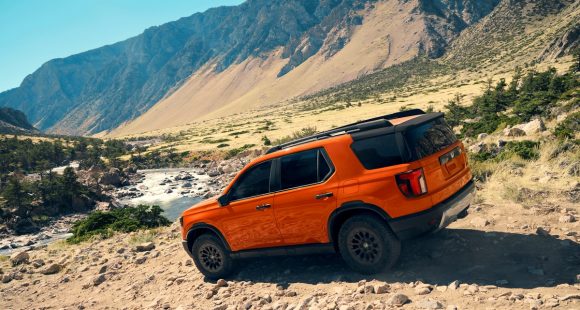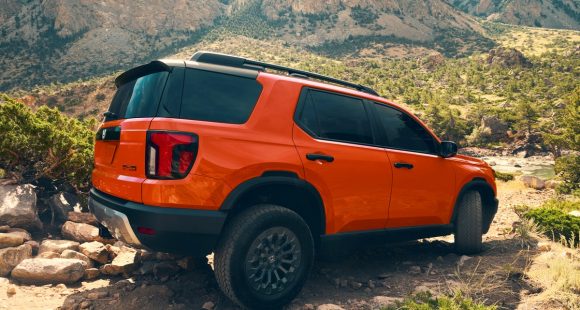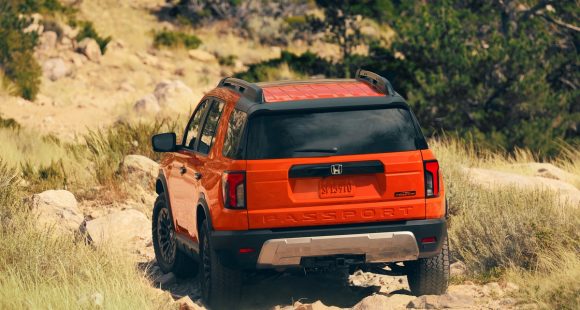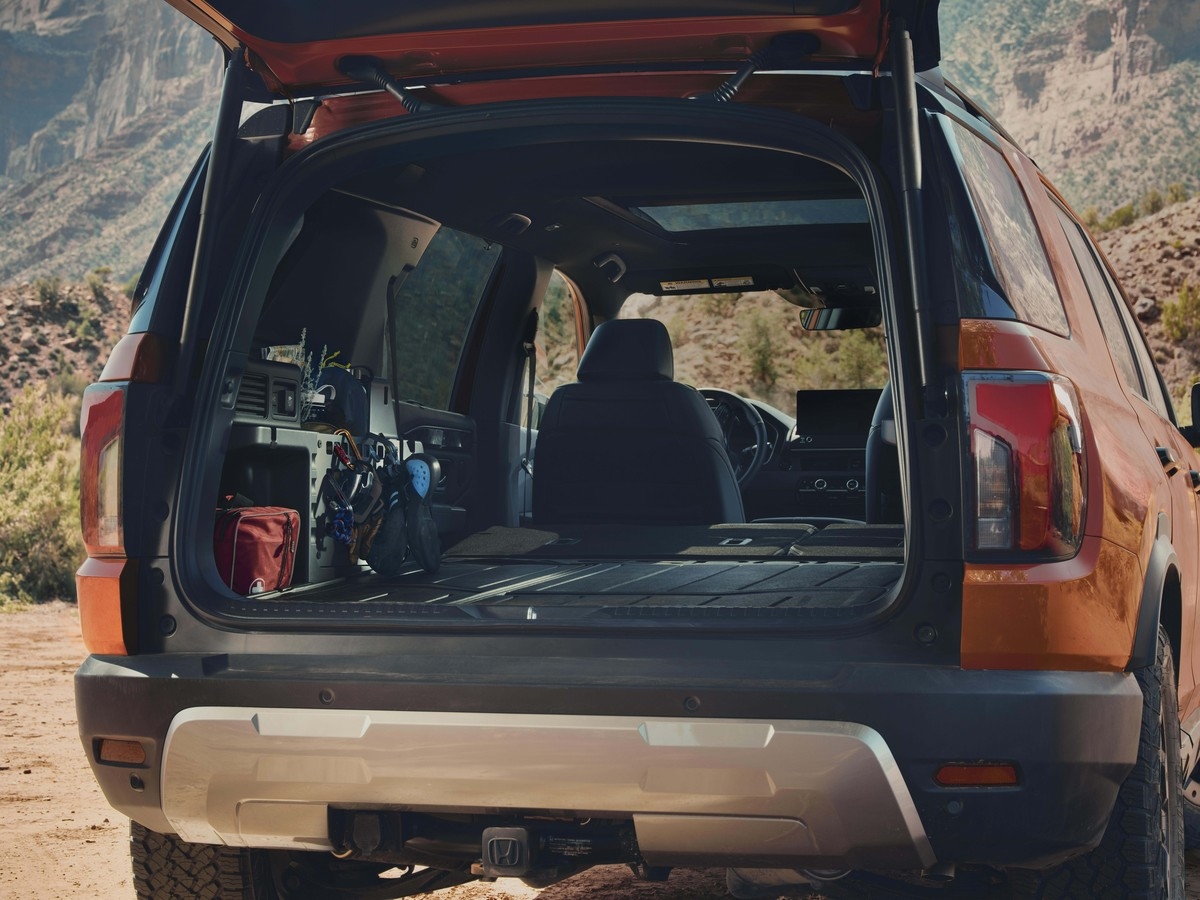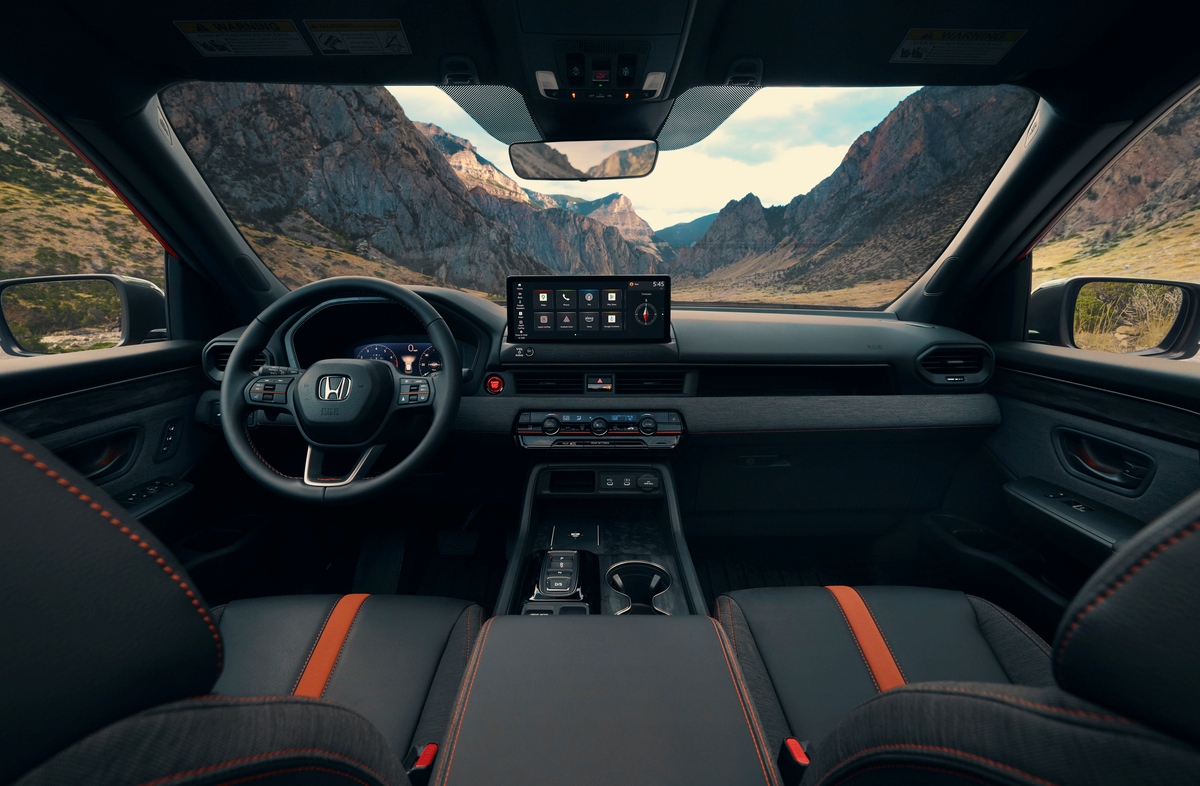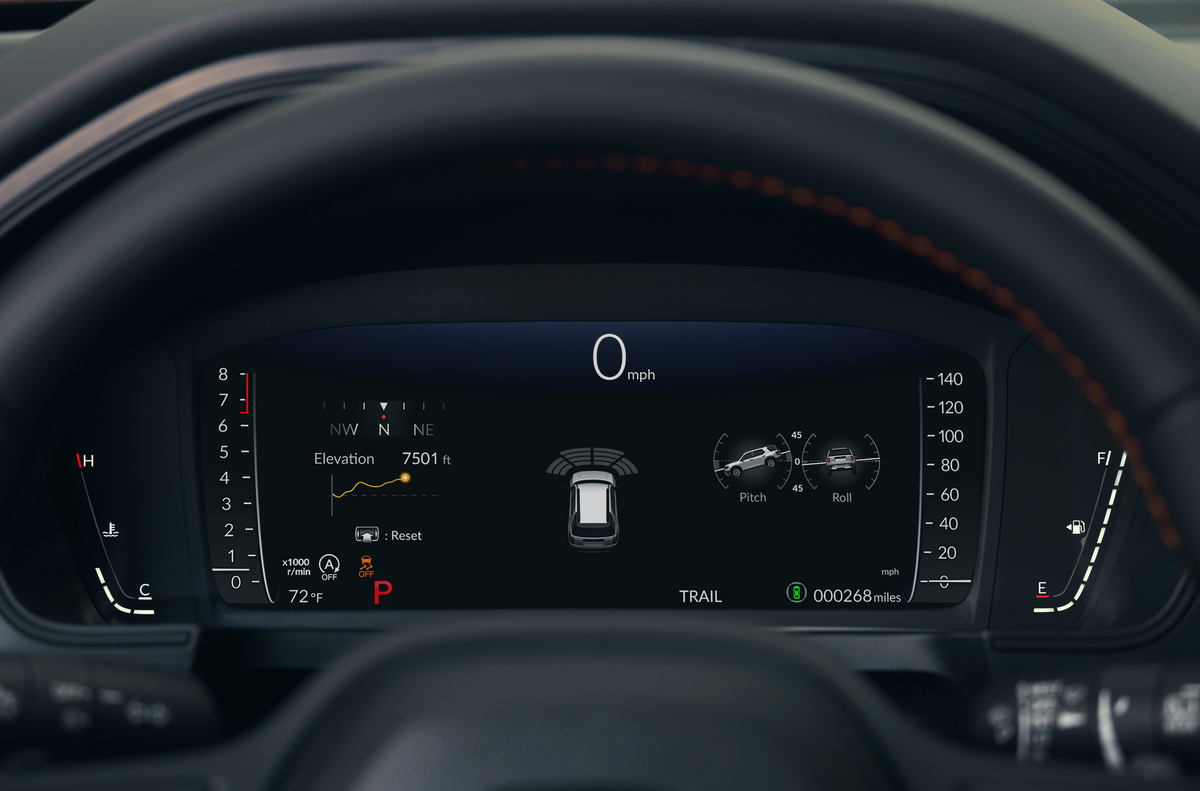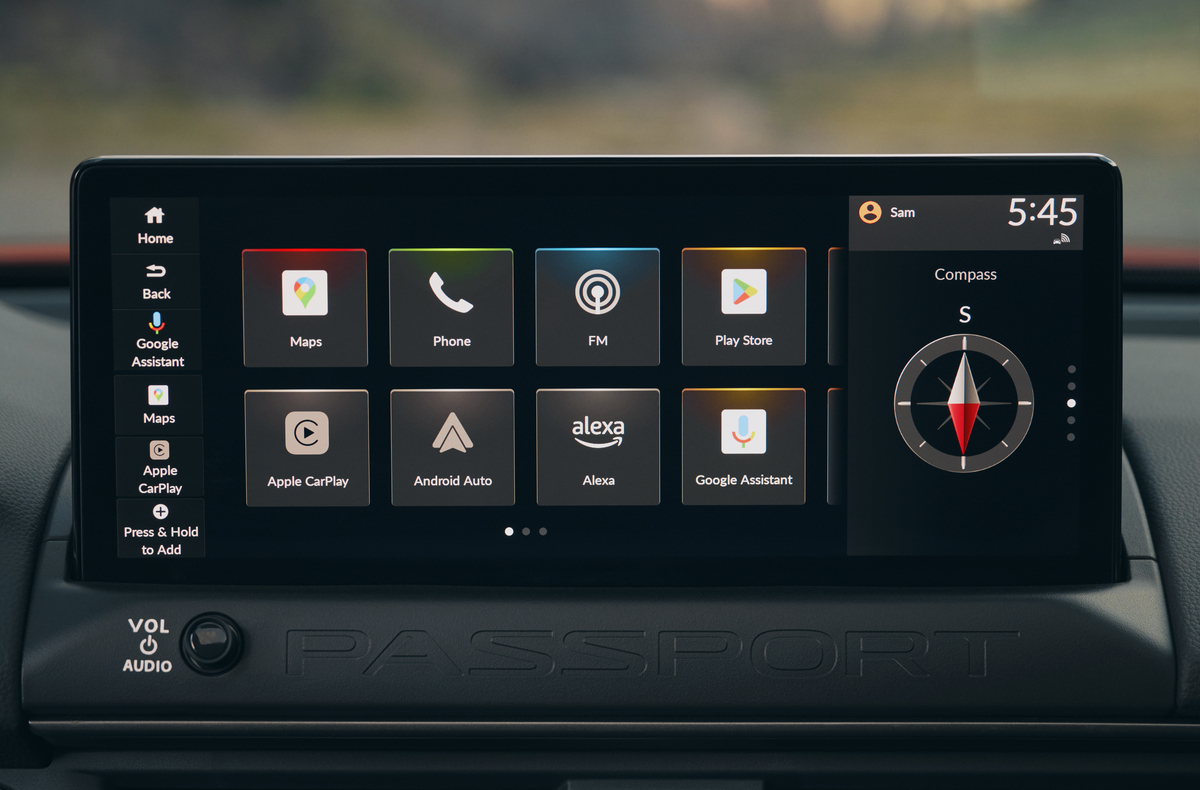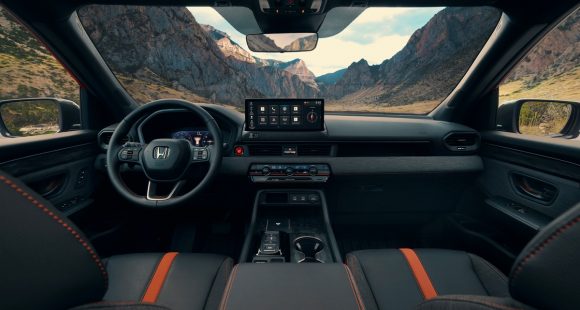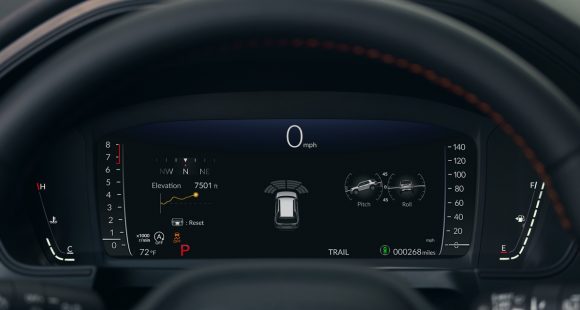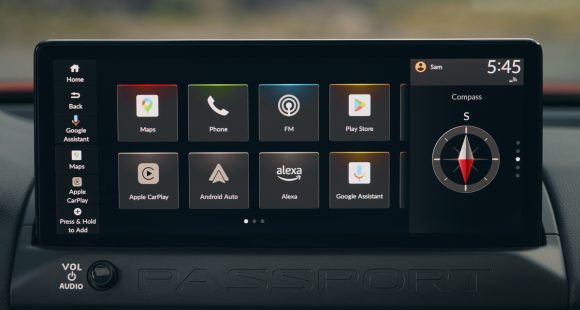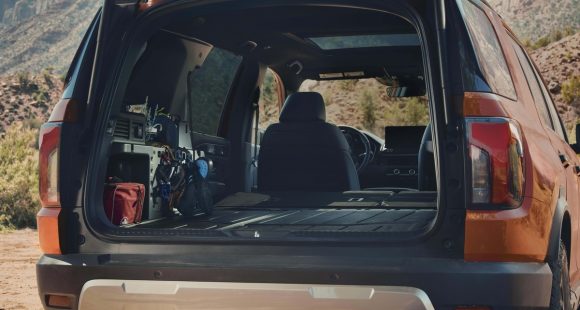2026 Honda Passport Breaks Mold by Joining Boxy Trend
November 13, 2024There’s a Pavlovian effect in the automotive industry: The bigger, bolder, and boxier an SUV can be, the more we associate it with off-road ruggedness. That said, we all know it takes more than squared edges and chunky wheels to make something trail capable.
Honda has rung the bell and put an all-new, fourth-generation Passport on a plate, revealed for the 2026 model year and appearing more adventure-oriented than ever before thanks to a bolder, boxier design. And while the aesthetic is enough for the proverbial dog to start salivating, Honda has backed it up with some off-road chops.
The new Passport will be offered in three grades, the RTL, TrailSport and a first-ever TrailSport Elite, all with various levels of equipment. Those wanting to lean fully into the “Born Wild” aspiration set forth by the Passport’s Ohio-based designers will need to spring for the latter two grades. Both TrailSports get off-road-tuned suspension, steel skid plates, recovery hooks and all-terrain tires wrapped on unique wheels; tech-wise, expect readouts for roll, pitch and elevation, and additional camera views.
All three grades do benefit from a hill descent control feature, operating on grades up to 7% and between 2 and 12 mph, as well as a standard all-wheel-drive layout, the second generation of Honda’s i-VTM4 system. It’s said to have a stronger rear drive unit, capable of 40% more torque capacity and 30% faster response. This AWD system is fed by a 3.5-liter V6– same as before, but now rated at 285 horsepower, up from 280, though torque remains the same at 262 lb-ft. The nine-speed automatic has been ditched for a new 10-speed box.
Overall, the fourth-gen Passport sees a wheelbase expansion of nearly 3 inches, now 114 total, and a track wider by more than an inch front and rear. Measuring nearly 191 inches overall, it’s grown by roughly 2 inches. Based on Honda’s light truck platform, which was said to have been engineered with TrailSport in mind, lateral rigidity is also up. That growth will benefit second row passengers, who now gain additional legroom, and overall cargo volume is rated at 44 cubic-feet with both rows up. Fold the second row down, and 83.5 cubic-feet of storage is available, the most in the model’s history, according to Honda. The trunk space also has larger, redesigned underfloor stowage.
As expected from a modern Honda, the standard 12.3-inch infotainment unit incorporates a built-in Google suite, though wireless smartphone integration is included. That screen is joined by another standard plot of digital real estate, a 10.2-inch digital instrument panel, and those purchasing a top-trim TrailSport Elite will have their music and navigation directions audibly cascade from a 12-speaker Bose sound system. Overall, the Passport’s cabin mirrors the exterior with more squared edges and sharp angles, though it isn’t as drastic of a shift as the exterior.
The 2026 Honda Passport is set to arrive early next year, produced at their plant in Lincoln, Alabama. Though pricing is yet to be detailed, it’s said to start “in the mid-$40,000s,” which isn’t too far off from the current model.




